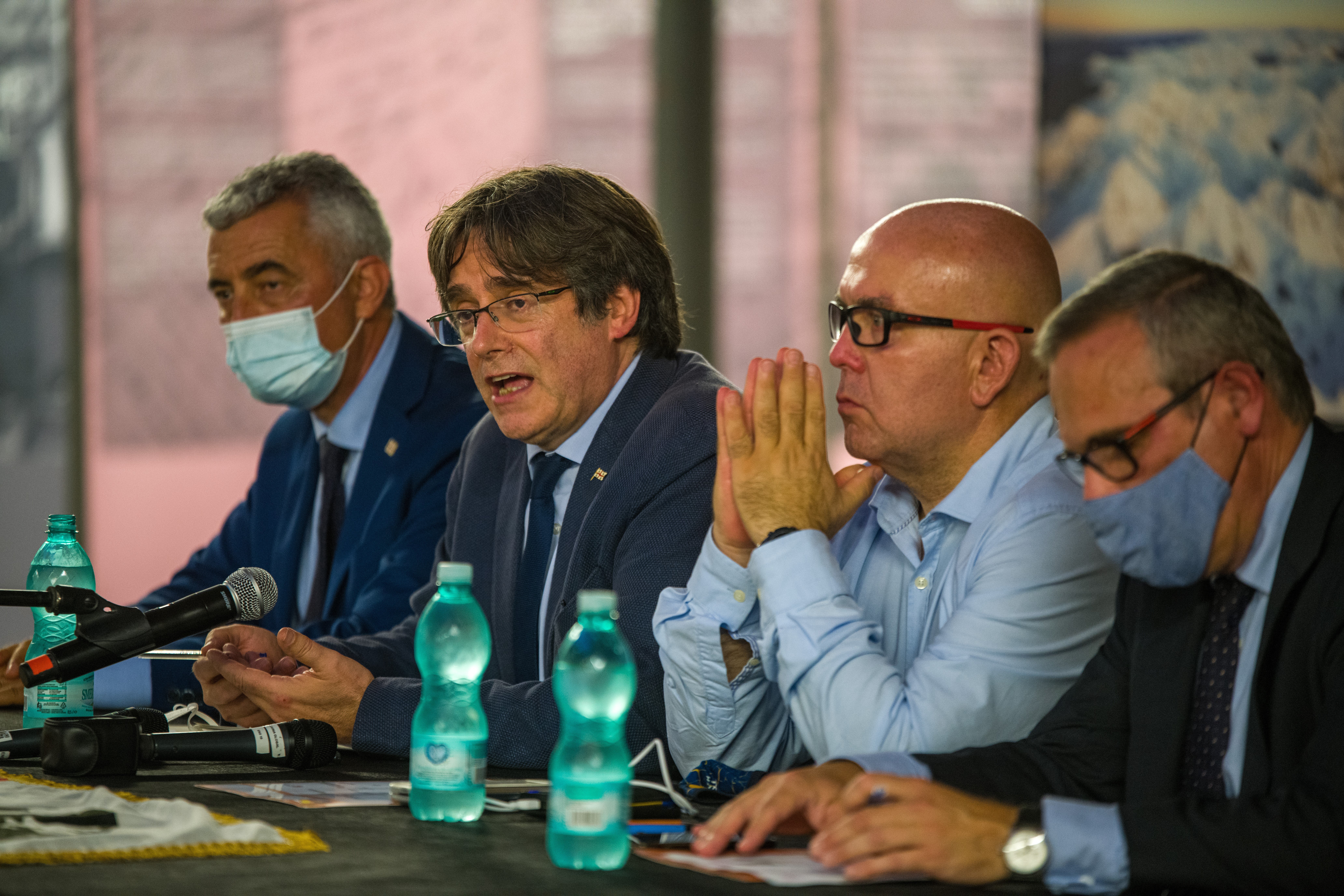The three European parliamentarians for Together for Catalonia (Junts) have once again voiced their demand for the recusal of the Spanish Supreme Court judge, Pablo Llarena, investigating judge for the pro-independence leaders' case, after he made clear his position on applying an amnesty law to those involved in the case. After the judge, ten days ago, rejected the demand that he recuse himself from the Catalan independence process case, arguing that it will not be up to him to raise a question of unconstitutionality in the event that an amnesty law is passed, the lawyer representing MEPs Carles Puigdemont, Toni Comín and Clara Ponsatí has now replied with a refutation of this argument, warning that it will necessarily be the investigating judge who has to apply an amnesty law, proposed in the context of the negotiations for the formation of a new Spanish government.
The defence team for the exiled politicians, led by Gonzalo Boye, once again questioned Llarena's impartiality and presented a new challenge after an address given by the judge on September 11th in which "he spoke about the possible consequences and actions he would take if the amnesty law were to be approved". Llarena rejected the appeal arguing that his neutrality cannot be considered "compromised", given that the speech was given in a "strictly academic" space and dealt with "the analysis of the basic technical criteria for supervision of the constitutionality of any legal norm". The judge added that if the law is passed, it will not be up to him to decide on its constitutional correctness "nor on the raising of a question of its unconstitutionality".
Faced with the inadmissibility of the recusal, the exiled politicians have today presented a new appeal, addressed to the "most excellent challenged judge" and to which ElNacional.cat has had access, in which they argue that, contrary to what Llarena claims , the investigating judge could "question the constitutionality of a future amnesty law". "The investigator-judge is aware that, in the possible case that an amnesty were to be promulgated, and that it affected those prosecuted in the present proceedings, he would be the first who had to apply the norm and, in such a case, if he considered it appropriate, to raise a question of unconstitutionality", he replies.
Llarena, political commentator
The legal submission insists that the Supreme Court judge, in his speech, not only showed a political position that made clear the departure from the necessary appearance of impartiality, but that he took the lead in "manifestations that, going beyond mere political criticism, denote a personal animosity towards the recusants". The text asserts that it is not appropriate for Llarena to "act as a political commentator on the activity, also political, of those who are illegally prosecuted by him", as he did, according to Boye's complaint, in the speech he gave on September 11th. "And in doing so, he loses any kind of appearance of impartiality, otherwise non-existent at the time of giving the aforementioned conference", he says.
The MEPs also criticized that it is Llarena himself who has rejected the recusal against him. "Without the need to resolve now on the manifest lack of competence of the criminal chamber of the Supreme Court to investigate the present criminal case, it is clear that the recused magistrate also manifestly lacks the competence to decide on the admission for hearing of his own recusal case", says the text.
The appeal recalls that, according to the Spanish law governing the judiciary, there are two bodies competent to address the recusal of a judge of the criminal chamber of the Supreme Court: in the case of the investigation of the matter, the judge investigating the recusal - who is different from the challenged judge - and, for the decision, the chamber itself. "In no way can the challenged judge decide on his own recusal," says the text. For this reason, it requests that the contested resolution be revoked.

